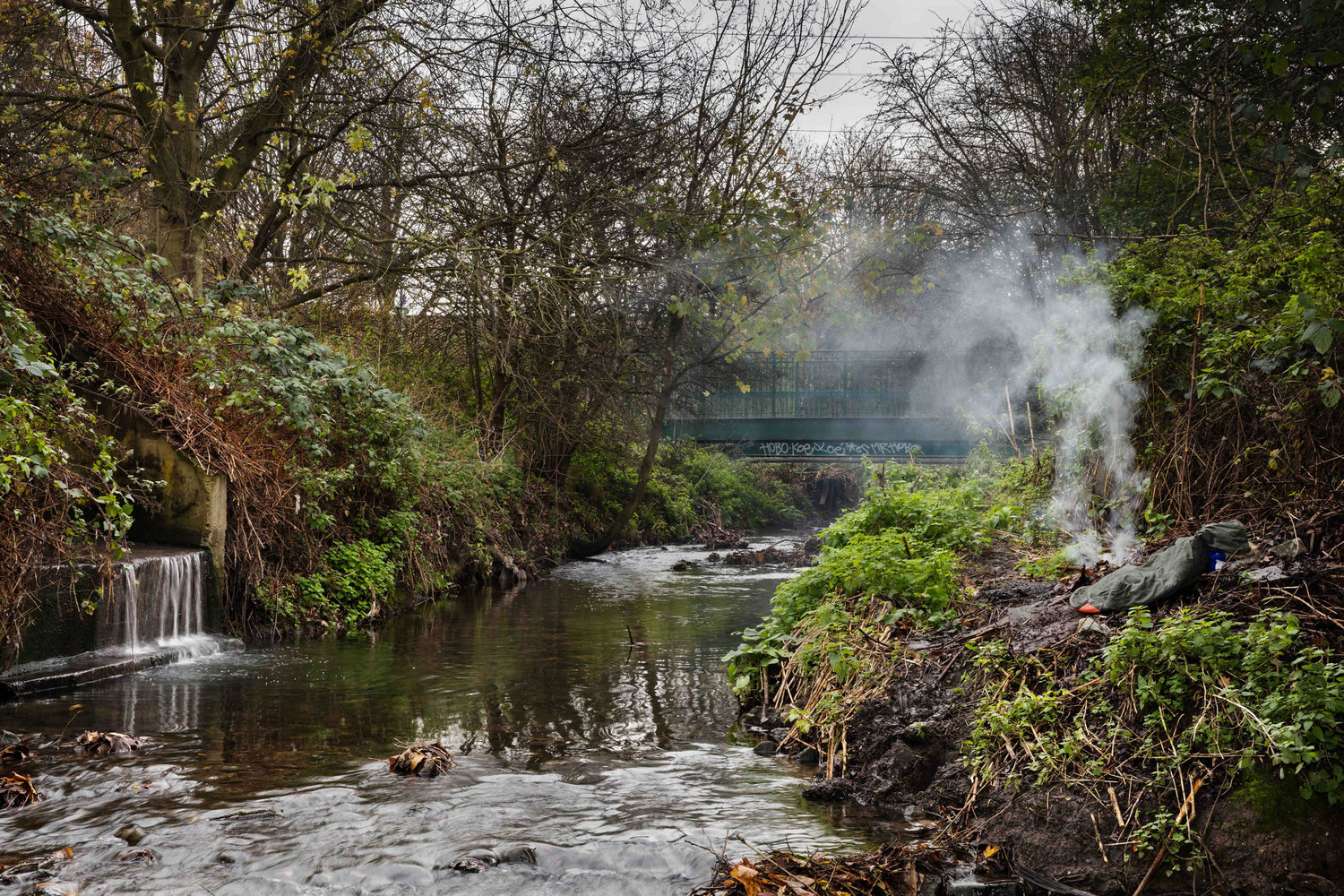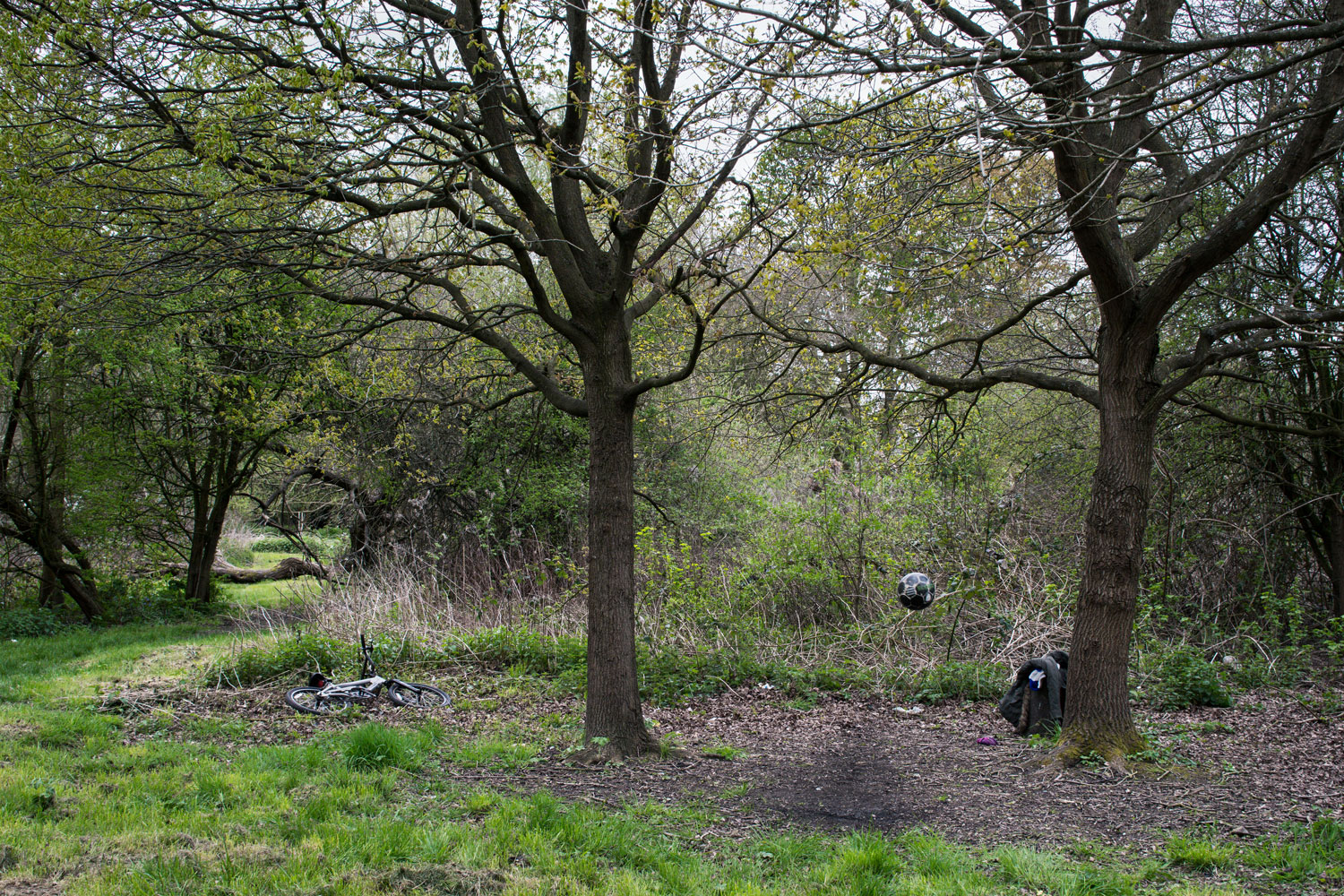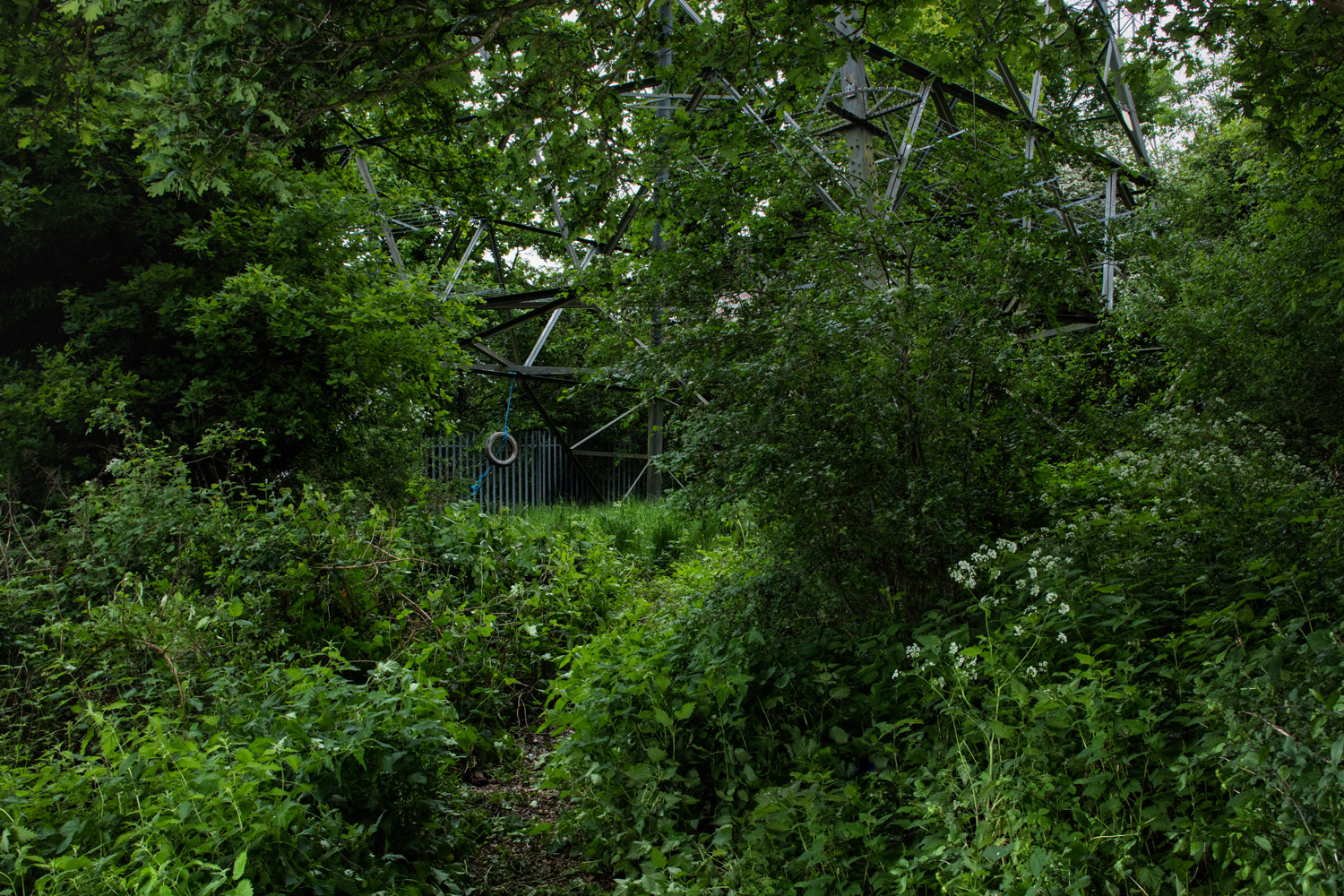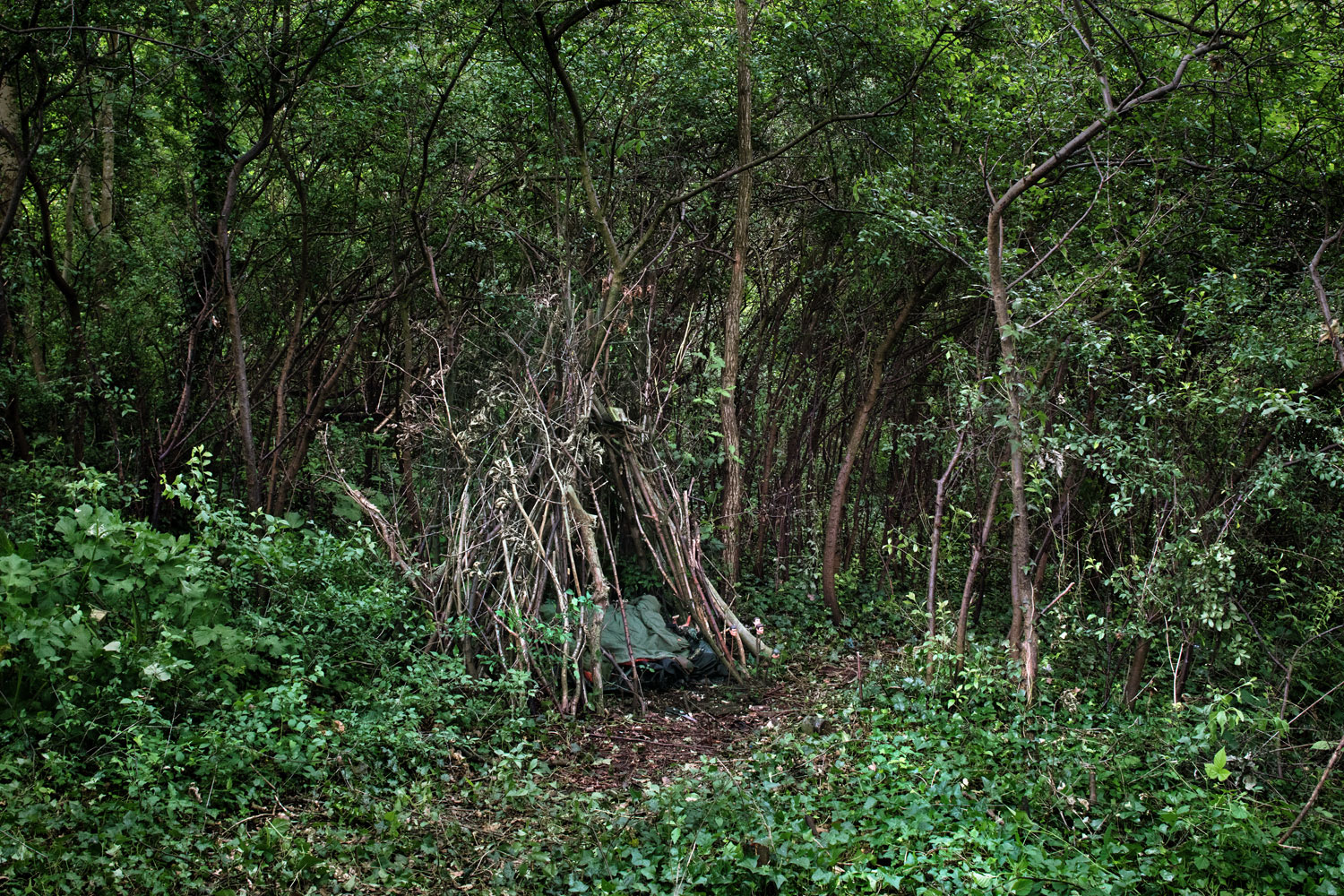“He who seeks to approach his own buried past must conduct himself like a man digging.” Walter Benjamin
The death of my parents awoke within me a realisation that their memories of me, as a child, perished with them, and that my own oldest memories were imperfect, fragmented and disordered. Perturbed by this fading away of self I travelled to a place forbidden to me as a child, a wooded valley bordering our suburban home, and set loose a counter-factual proxy - a boy of ten who was like me but who was not me - to play freely in this archaic green space.
The return to the place of childhood is a double return, it also embraces a temporal return, to 1977, the year the boy will celebrate his tenth birthday, see Star Wars, listen to the Sex Pistols, get his first summer job. A year of expanding horizons.
I tracked the boy for months, staging and photographing sites where he played, determined for my pictures to yield an anterior space of new memory and an alternative history that might replenish my own diminished inventory of childhood recollections.
But, like Benjamin’s “man digging”, I began to understand that the making, and taking, the inventory, could never satisfy my desire. It was the endeavour, the process itself, the obsessive revisitation of the valley at all hours in all seasons, the walking and wading, the methodical exploration and mapping, the numerous little rituals, repetitions and frustrations associated with making work, that had been laid down as fresh strata of memory for me to excavate.




